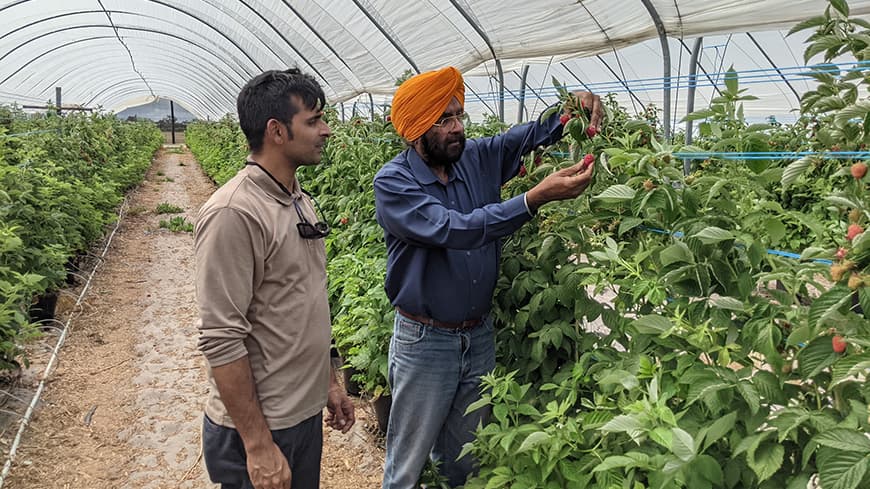
Edith Cowan University (ECU) horticultural scientists have been compiling research over the past year from all over the world to assess the benefits of melatonin application onto fruit and vegetables, to help keep these highly perishable foods fresher – for longer.
Lead researcher Professor Zora Singh said up to 44 percent of fresh horticultural produce is lost from farm to consumption, and ‘chilling injury’ plays a key role in the postharvest losses.
“You will often see abnormal ripening, sunken spots, pitting, hardening of flesh and browning of peel and pulp in cold-stored fruits, while browning of tissues, translucency and water-soaked lesions in the vegetables, that is what we call chilling injury,” Professor Singh explained.
“The average storage temperature for subtropical fruits and vegetables usually range from 4–8°C while 10–20°C is optimum temperature to avoid chilling injury in tropical horticultural produce.”
Professor Singh and his team claim most of the evidence points to melatonin as one of the best ways to prevent or reduce the effects of chilling injury to cold-stored fruit and vegetables.
“Melatonin is a natural sleeping hormone in living organisms, and it is also helpful in reducing chilling injury symptoms and membrane leakage by maintaining higher levels of antioxidants and freshness of horticultural produce,” researcher and PhD student Shoaib Shah explained.
“Melatonin is a safe alternative to hazardous chemical treatments, without any adverse effects on the consumer health.”
Global food security – the challenge
Across the globe food security is an escalating problem, with food losses rising annually.
- 13.2 per cent of food, valued at $400 billion, is lost annually between harvest and the retail market (FAO 2019)
- 17 per cent of food production is wasted in households, food services and in retail (UNEP 2020)
- Food loss and waste account for approximately 8-10 per cent of global greenhouse gas (GHG) emissions (UNEP 2021)
Fresh produce, such a fruit production is declining, the result of shrinking agricultural land, reduced availability of water supplies, climate change and soil degradation.
Chilling injury is another significant factor contributing to that decline, resulting in 44 per cent of fruit and vegetables not being fit for human consumption globally.
Tropical and sub-tropical fruits are most at risk, as they are highly perishable.
While fruits such as apples can stored for up to nine months, berries can only be kept refrigerated for seven to 12 days.
“When it comes to grains and other produce for harvest, they are more resilient than fresh horticultural produce,” Professor Singh said.
“Fruit and vegetables are not only challenging to grow, preserving them is immensely difficult and this is a crisis affecting nations all over the world, so we need to find the solution to keep producing food from the earth in a sustainable way.”
Professor Zora Singh is a Foundation Professor of Horticultural Science in ECU’s School of Science with global research expertise in production technology and postharvest physiology of horticultural crops.
Presently, Professor Singh and his research team, including PhD students, are working to minimise the global food and nutritional security challenges by improving production technology and reducing postharvest losses in fresh horticultural produce - from farm to fork.
You can read the full paper, Insight into the Role of Melatonin in Mitigating Chilling Injury and Maintaining the Quality of Cold-Stored Fruits and Vegetables authored by Shoaib Shah, Zora Singh, Eben Afrifa-Yamoah, Mahmood UI Hasan, Jashanpreet Kaur and Professor Andrew Woodward here.
 ECU researchers claim melatonin is a safe alternative to hazardous chemicals in keeping fruit and vegetables fresh.
ECU researchers claim melatonin is a safe alternative to hazardous chemicals in keeping fruit and vegetables fresh.




